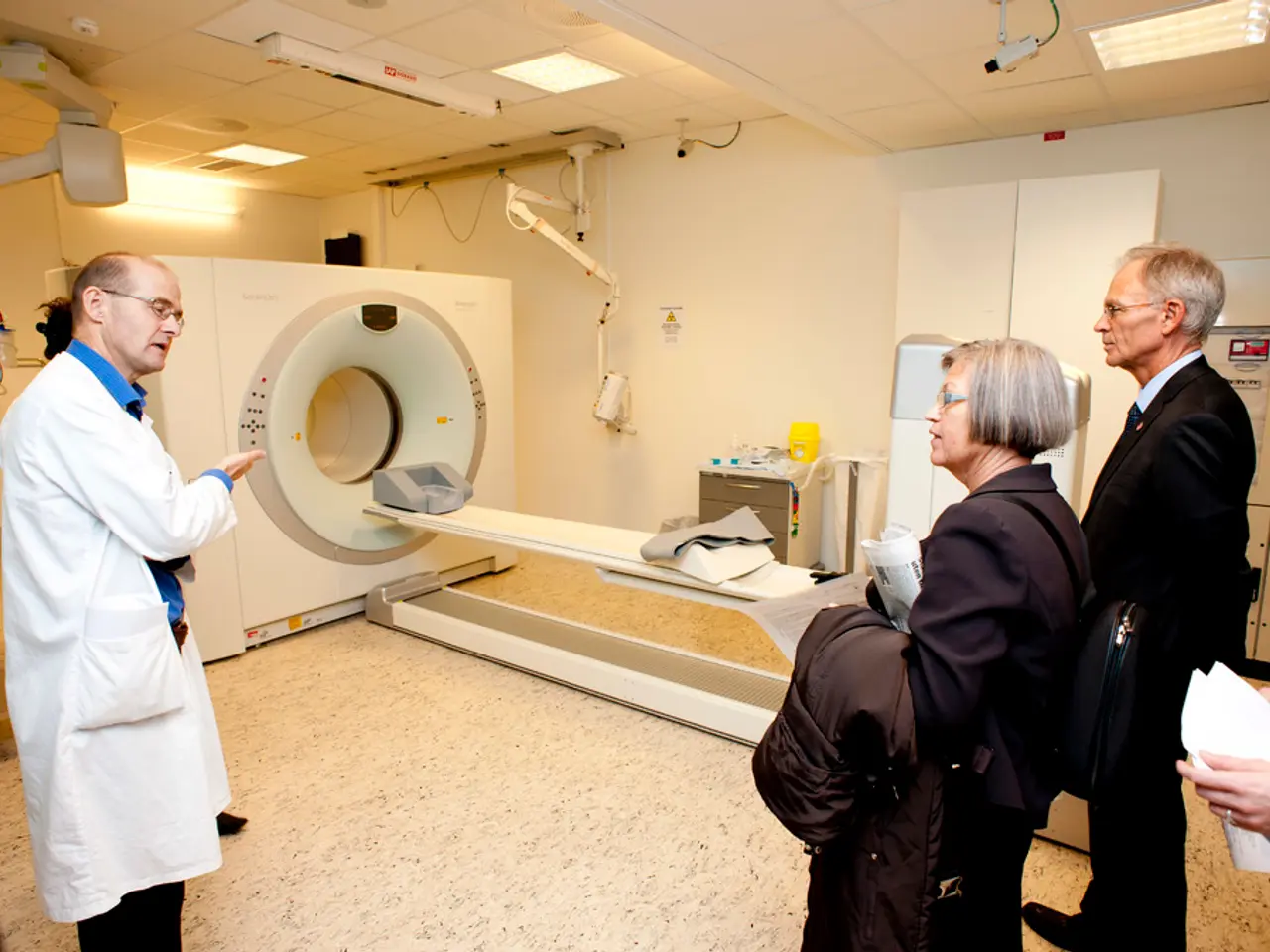Interview Questions with Onni Eriksson, Co-founder of AIATELLA
In the realm of medical technology, AIATELLA is making significant strides, transforming the way cardiovascular imaging is analysed and patient care is delivered. During a recent medical conference, the technology successfully identified several individuals with significant carotid stenosis, potentially saving lives.
AIATELLA's long-term vision is nothing short of revolutionary - to make advanced cardiovascular screening as routine and accessible as checking blood pressure. The company is exploring ways to support population health efforts, making large-scale heart screenings possible in resource-limited areas.
The AI-powered software by AIATELLA significantly enhances the analysis of cardiovascular imaging. It uses advanced computer vision and deep learning algorithms to automatically detect key structures in the heart and blood vessels, measuring critical parameters such as vessel diameter, wall thickness, and blood flow characteristics. This automated process drastically reduces the analysis time from 30-45 minutes by human specialists to just a few minutes, enabling clinicians to focus more on patient care and clinical decision-making.
The system's efficiency is matched by its precision. AIATELLA's software analyses cardiovascular scans over 100 times faster and with greater accuracy than humans. It not only automates routine measurements but also flags potential abnormalities, monitors changes over time, and generates structured, easy-to-understand reports. By transforming complex imaging data into actionable insights, it facilitates faster diagnoses and supports better treatment decisions, ultimately enhancing patient outcomes.
AIATELLA's system is built around three key principles: accuracy, transparency, and trust. It provides confidence scores to alert doctors when image quality or other factors might reduce accuracy. Moreover, the AI system provides explanations for its measurements, showing doctors where and how measurements were taken.
The platform is hardware-agnostic, working with images from various machines. AIATELLA is expanding its impact into other types of imaging like MRI and ultrasound. The company maintains ongoing quality checks, comparing system results with expert annotations, conducting regular performance reviews, and collecting user feedback. They stay in close contact with doctors who use their system to continuously improve algorithms and user experience.
In ensuring consistent performance, AIATELLA uses diverse patient data to train its AI system, reducing bias and ensuring its applicability to a wide range of individuals. The technology is tested with varied imaging equipment, protocols, and patient populations.
In essence, AIATELLA is contributing to more efficient cardiovascular imaging through rapid, precise automated analysis and supporting improved patient care by enabling quicker, more informed clinical decisions. The future of cardiovascular health care seems to be in safe hands with AIATELLA.
[1] AIATELLA's official website [2] Journal of the American College of Cardiology, Vol. 75, No. 16, 2019
- AIATELLA is leveraging artificial intelligence to revolutionize the field of cardiovascular health, aiming to make advanced cardiovascular screening as routine and accessible as checking blood pressure.
- The company's AI-powered software significantly enhances the analysis of cardiovascular imaging, using advanced computer vision and deep learning algorithms to automate key measurements and flag potential abnormalities.
- The software analyzes cardiovascular scans over 100 times faster and with greater accuracy than humans, generating structured, easy-to-understand reports that support quicker diagnoses and better treatment decisions.
- AIATELLA upholds accuracy, transparency, and trust, providing confidence scores and explanations for its measurements, working with images from various machines, and maintaining ongoing quality checks to continuously improve algorithms and user experience.
- The system's diverse data training and testing ensure its applicability to a wide range of individuals and imaging equipment, contributing to more efficient cardiovascular imaging and the future of cardiovascular health care.




